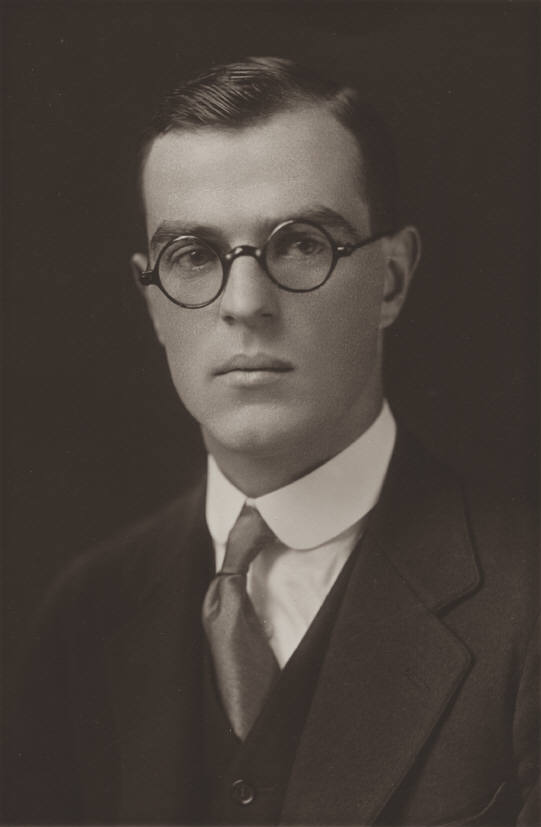Thornton Niven Wilder najznámejšie citáty
Thornton Niven Wilder citáty a výroky
Thornton Niven Wilder: Citáty v angličtine
Zdroj: The Bridge of San Luis Rey (1927)
Kontext: Soon we shall die and all memory of those five will have left earth, and we ourselves shall be loved for a while and forgotten. But the love will have been enough; all those impulses of love return to the love that made them. Even memory is not necessary for love. There is a land of the living and a land of the dead and the bridge is love, the only survival, the only meaning.
"Emily Webb"
Our Town (1938)
Kontext: I can't. I can't go on. It goes so fast. We don't have time to look at one another. I didn't realize. So all that was going on and we never noticed. Take me back — up the hill — to my grave. But first: Wait! One more look. Good-by, Good-by, world. Good-by Grover's Corners... Mama and Papa. Good-by to clocks ticking... and Mama's sunflowers. And food and coffee. And new ironed dresses and hot baths... and sleeping and waking up. Oh, earth, you're too wonderful for anybody to realize you.... Do human beings ever realize life while they live it? — Every, every minute?... I'm ready to go back... I should have listened to you. That's all human beings are! Just blind people.
“Either we live by accident and die by accident, or we live by plan and die by plan.”
Zdroj: The Bridge of San Luis Rey
“Oh, earth, you're too wonderful for anybody to realize you.”
Zdroj: Our Town
"Simon Stimson"
Our Town (1938)
Kontext: That's what it was to be alive. To move about in a cloud of ignorance; to go up and down trampling on the feelings of those... of those about you. To spend and waste time as though you had a million years. To be always at the mercy of one self-centered passion, or another. Now you know — that's the happy existence you wanted to go back to. Ignorance and blindness.
Writers at Work interview (1958)
Kontext: I think myself as a fabulist, not a critic. I realize that every writer is necessarily a critic — that is, each sentence is a skeleton accompanied by enormous activity of rejection; and each selection is governed by general principles concerning truth, force, beauty, and so on. But, as I have just suggested, I believe that the practice of writing consists in more and more relegating all that schematic operation to the subconscious. The critic that is in every fabulist is like the iceberg — nine-tenths of him is underwater.
“I can't go on. It goes so fast. We don't have time to look at one another. I didn't realize.”
"Emily Webb"
Our Town (1938)
Kontext: I can't. I can't go on. It goes so fast. We don't have time to look at one another. I didn't realize. So all that was going on and we never noticed. Take me back — up the hill — to my grave. But first: Wait! One more look. Good-by, Good-by, world. Good-by Grover's Corners... Mama and Papa. Good-by to clocks ticking... and Mama's sunflowers. And food and coffee. And new ironed dresses and hot baths... and sleeping and waking up. Oh, earth, you're too wonderful for anybody to realize you.... Do human beings ever realize life while they live it? — Every, every minute?... I'm ready to go back... I should have listened to you. That's all human beings are! Just blind people.
“There is no happiness save in understanding the whole.”
The Eighth Day (1967)
Kontext: When God loves a creature he wants the creature to know the highest happiness and the deepest misery … He wants him to know all that being alive can bring. That is his best gift…. There is no happiness save in understanding the whole.
“Do any human beings ever realize life while they live it?”
Zdroj: Our Town
“People are meant to go through life two by two. 'Tain't natural to be lonesome.”
"Mrs. Gibbs"
Zdroj: Our Town (1938)
Sabina, Act One
The Skin of Our Teeth (1942)
“Being employed is like being loved: you know that somebody's thinking about you the whole time.”
Zdroj: The Matchmaker
Dolly Levi, in Act 4 http://books.google.com/books?id=MAEJ8VP0rMYC&q=%22Money+is+like+manure+it's+not+worth+a+thing+unless+it's+spread+around+encouraging+young+things+to+grow%22&pg=PA110#v=onepage
Zdroj: The Matchmaker (1954)
“Wherever you come near the human race there's layers and layers of nonsense.”
"Stage Manager"
Zdroj: Our Town (1938)
As quoted in "The Notation of the Heart" by Edmund Fuller, in The American Scholar Reader (1960) edited by Hiram Hayden and Betsy Saunders
